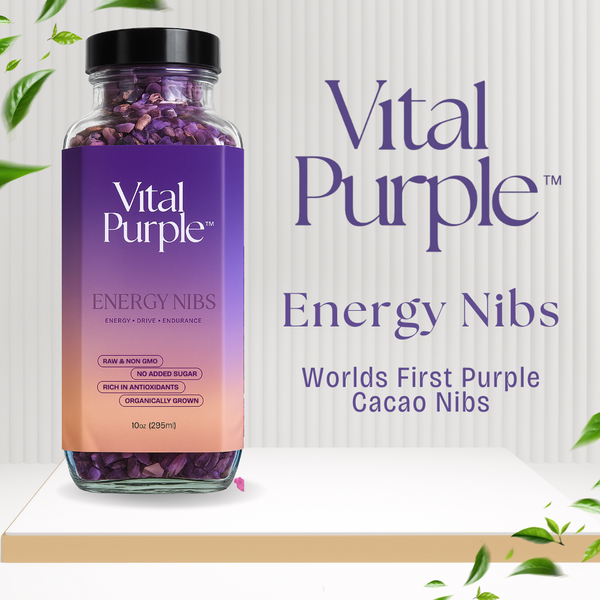Cocoa flavanols are among the many naturally-occurring chemical compounds that typically end up being removed from crops like cacao when commercially processed. Decades of study have touted their various health benefits, with cardiovascular, stroke, and diabetes risk reduction as well as positive effects on cognitive function, blood flow, and skin health being just some of those that are among them. What actually are these components though, and why are they important to consider as part of a health-conscious diet? Read on for a more in-depth look:
Table of contents
What Are Cocoa Flavanols?
As stated previously, cocoa flavanols are naturally-occurring compounds in the cacao plant that are removed through commercial-grade processing, but which can remain high in concentration when minimally processed into organic, high flavanol cocoa. They are found in the seeds of the tree (the cocoa beans themselves) and come in the form of molecules such as catechin and epicatechin which are known for their high antioxidant and anti-inflammatory properties. Through techniques such as grinding and sun-drying which avoid the typical high-temperature roasting most commercial-grade chocolate goes through, the flavanols and their vital nutrients are preserved.
Key Takeaways:
Cocoa flavanols are naturally-occurring, high-nutrient compounds in cocoa beans
Cocoa flavanols remain high in concentration when products are organic and minimally-processed
How Do Cocoa Flavanols Function?
When looking into the long list of high flavanol cocoa’s reported health benefits, it’s easy to assume the mechanisms that allow them to have these effects could be complicated or difficult to understand, but this is not the case. Through just a couple specific properties, cocoa flavanols can cover benefits ranging from Alzheimer’s risk reduction to a lower blood pressure and many others as well. The most well-known of these are its antioxidant and anti-inflammatory abilities, which can help prevent damage to healthy cells and reduce cardiovascular inflammation and blood clotting among other related effects. Just as important, however, is the ability of high flavanol cocoa to stimulate nitric oxide production in the body, which is vital for maintaining a healthy blood pressure as well as circulation. Nearly all the benefits of high flavanol cocoa you can find reported on stem from these few effects and make it among the best organic dietary supplements to choose.
Key Takeaways:
Cocoa flavanols provide many health benefits through anti-inflammatory and antioxidant properties
Cocoa flavanols also provide health benefits through promoting nitric oxide production
Why Are Cocoa Flavanols Important?
Beyond just the base health benefits high flavanol cocoa can provide, however, it has been consistently shown that cocoa flavanols often work especially well when attacking health problems that can occur or worsen as a result of aging. High blood pressure is an obvious one that falls into this camp, but age-based cognitive decline is an area where studies have shown high flavanol cocoa to be quite effective as well. This, ultimately, is why consistent consumption of cocoa flavanols matters for prolonged health. While trials ranging from participants given a single dose to participants taking a high amount of cocoa flavanols each day for multiple months have all shown it to have significant effects, those placing people on a diet of 500-1,000 mg per day over a longer period are where the greatest results are often seen.
Key Takeaways:
Cocoa flavanols are especially helpful at addressing age-related health effects
Cocoa flavanols work best when made a consistent part of the diet
References:
https://pmc.ncbi.nlm.nih.gov/articles/PMC3488419/
Writer / Researcher: Trey Norbey




